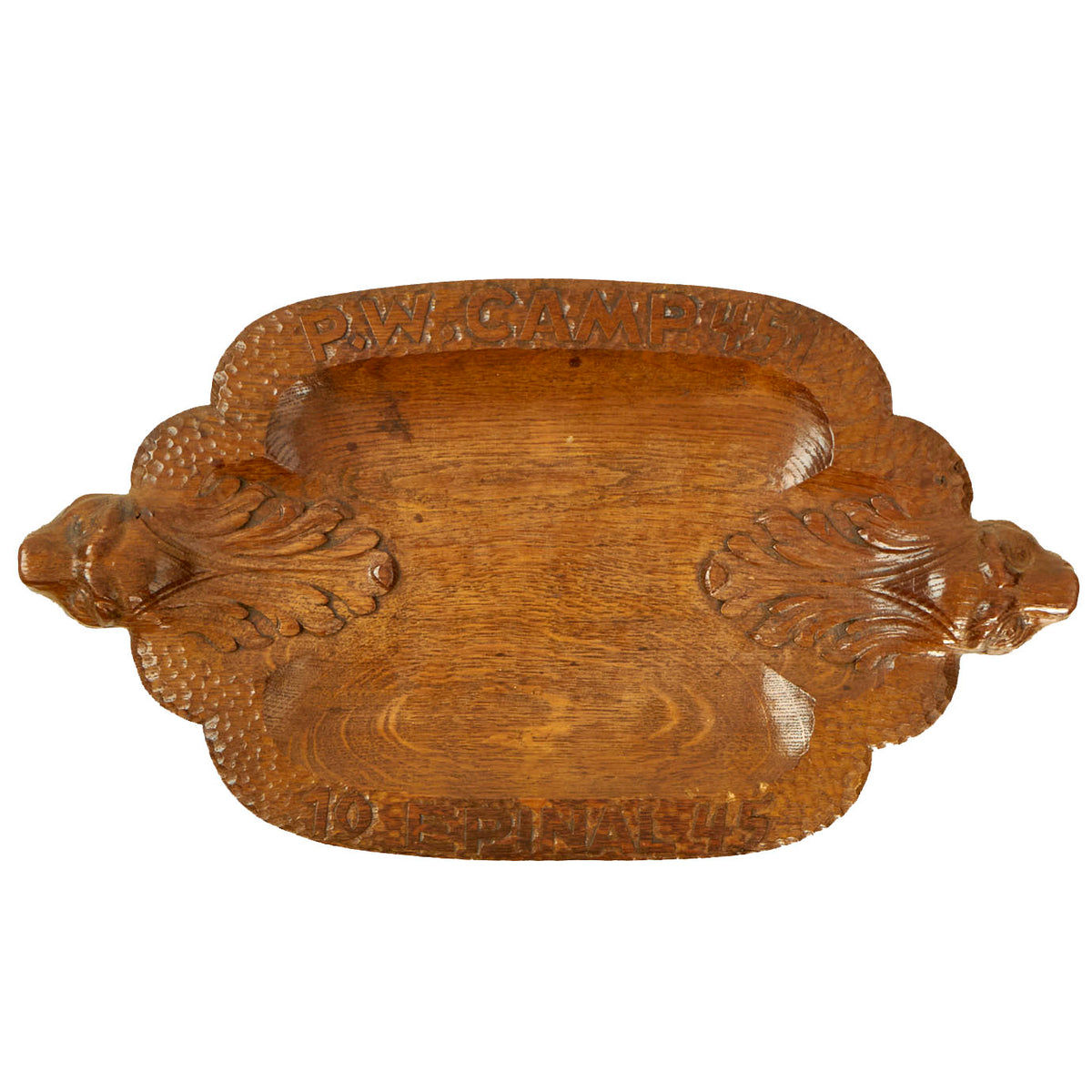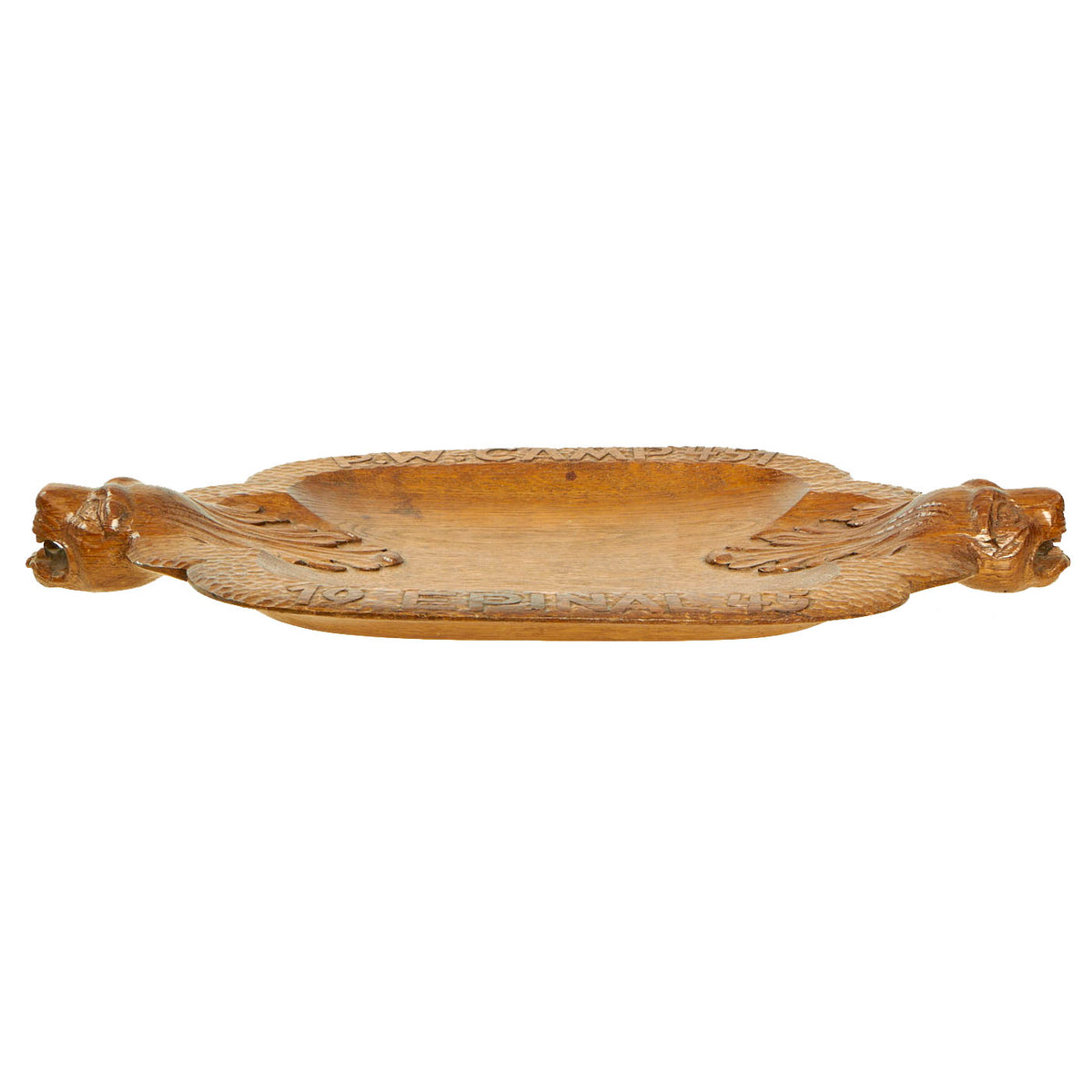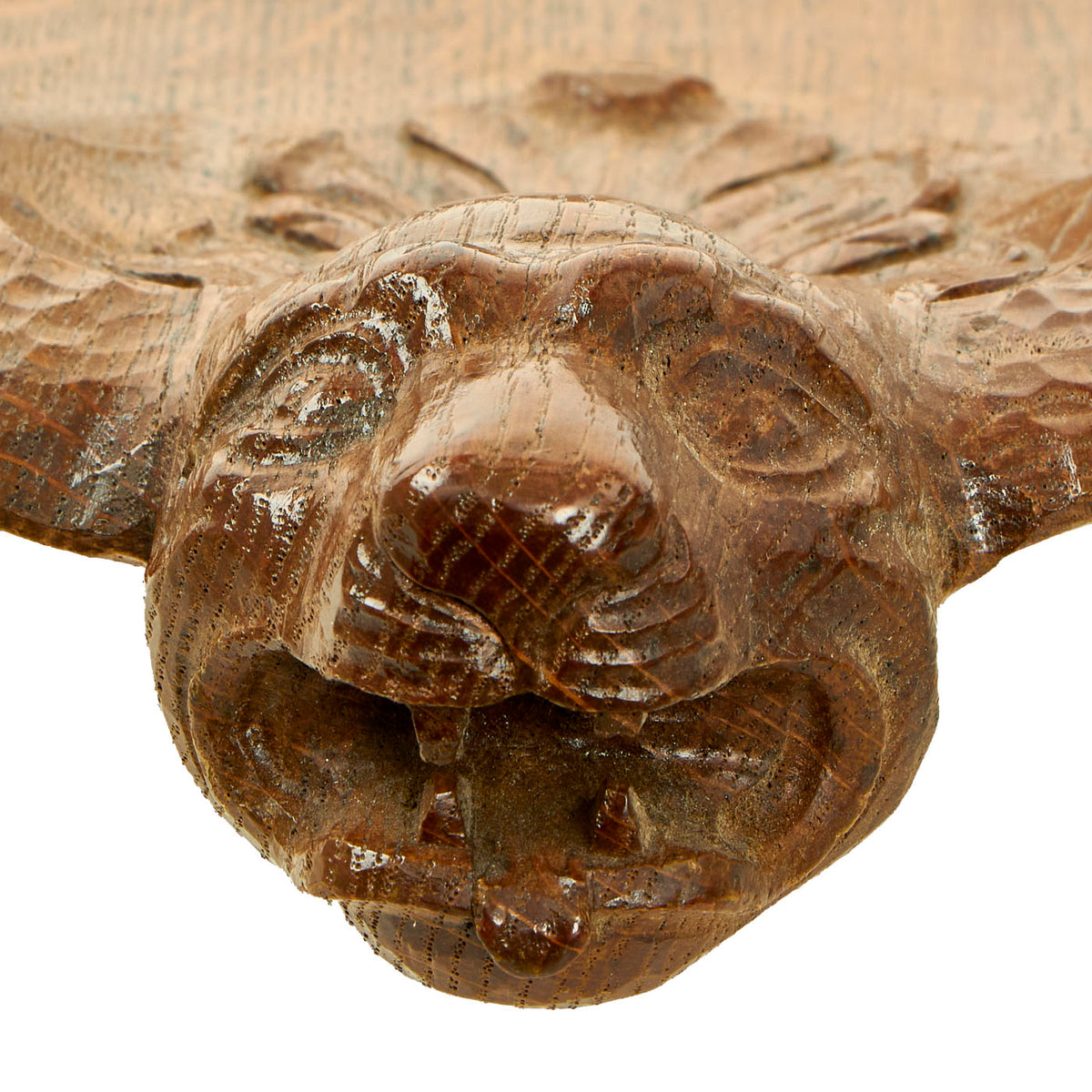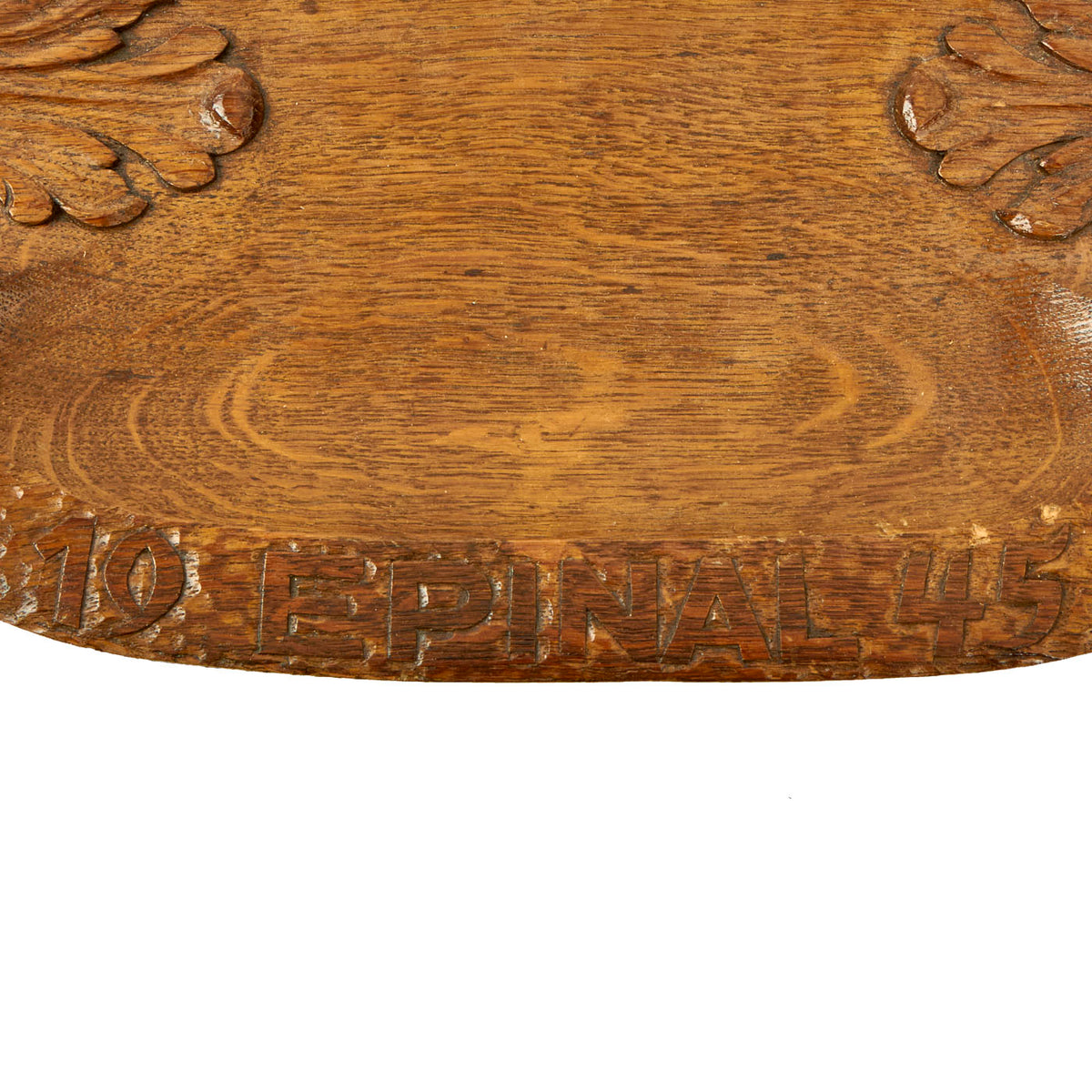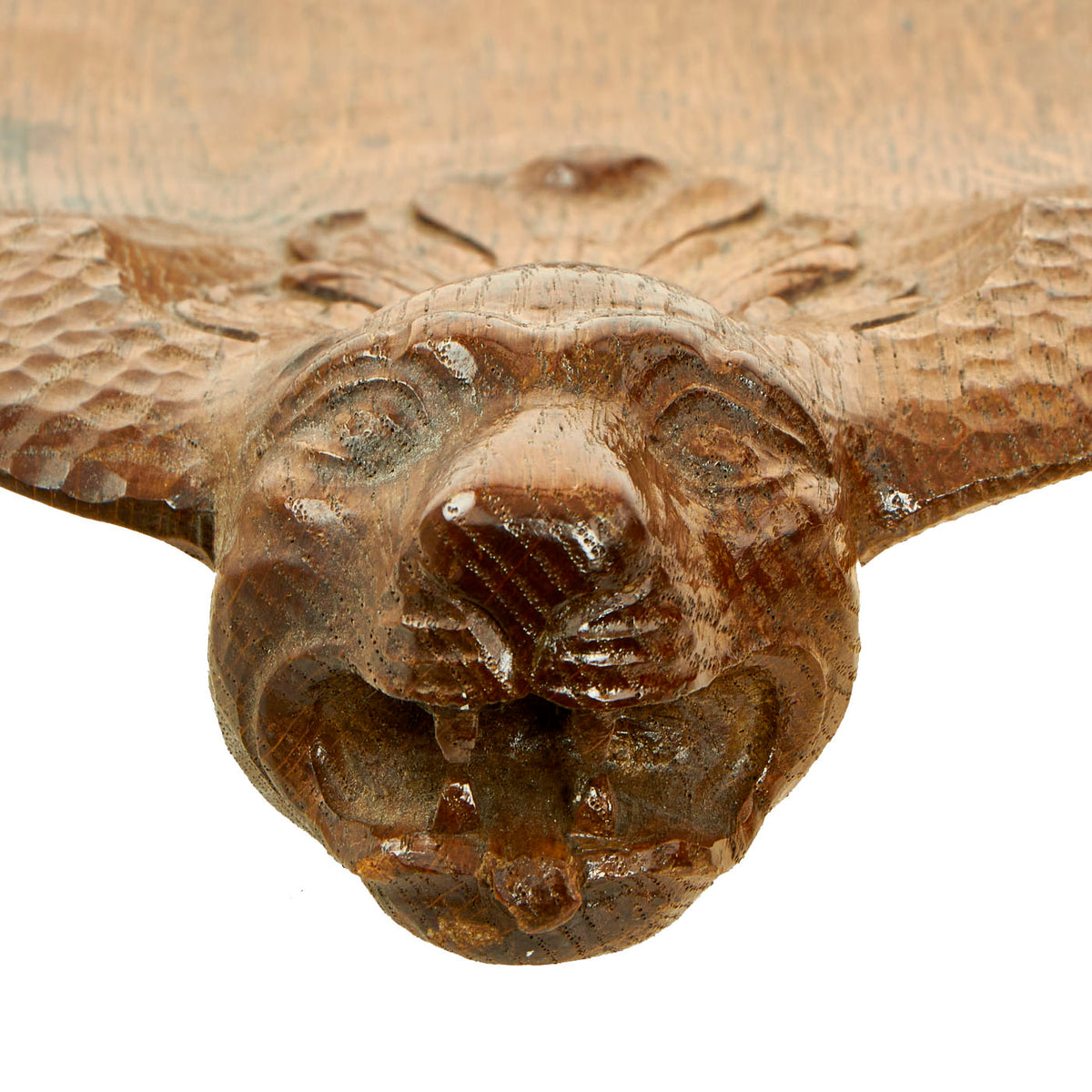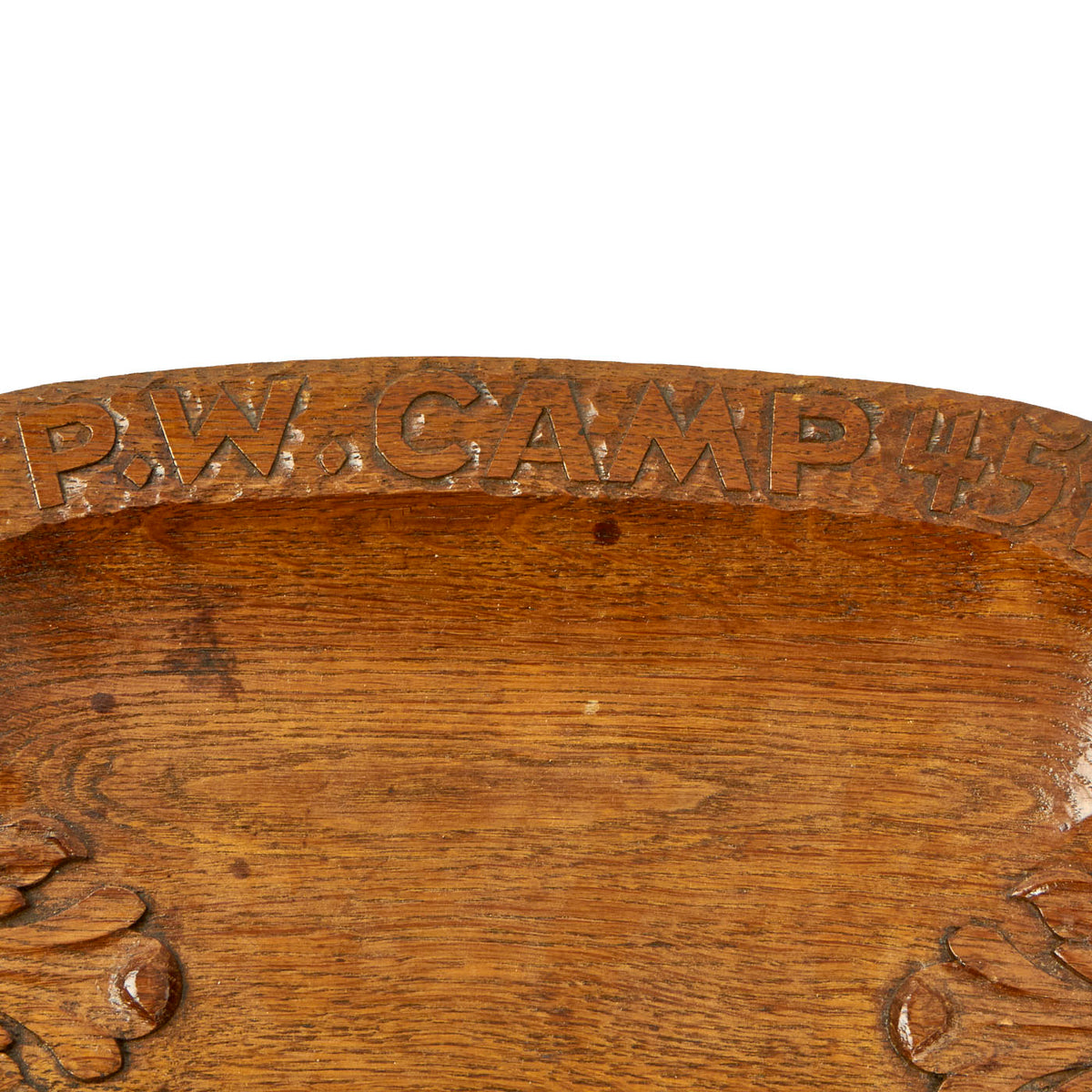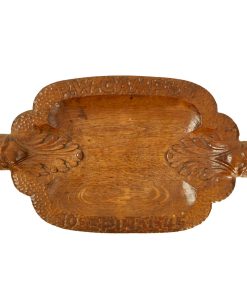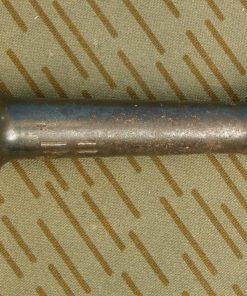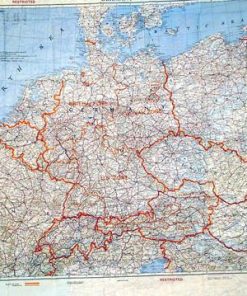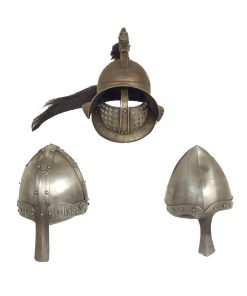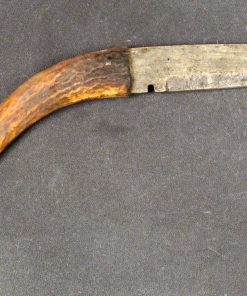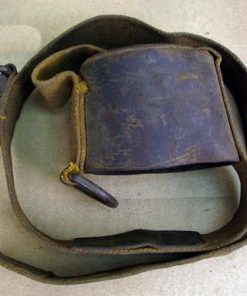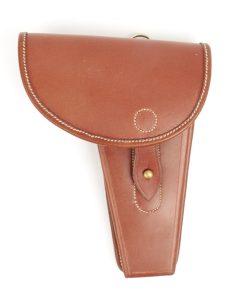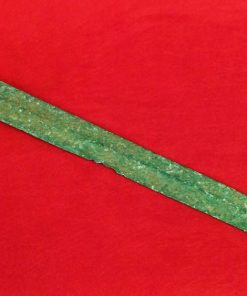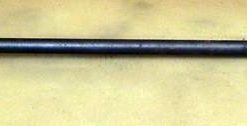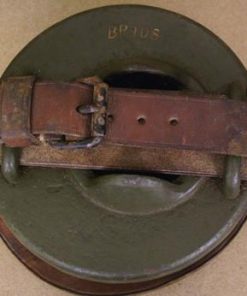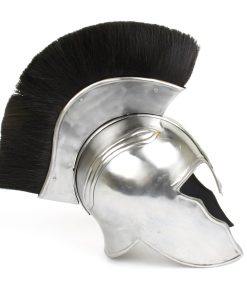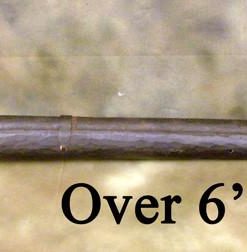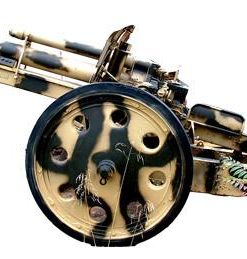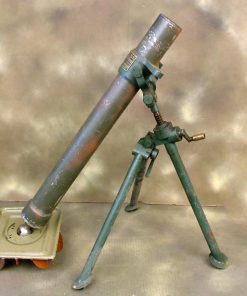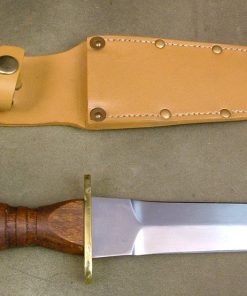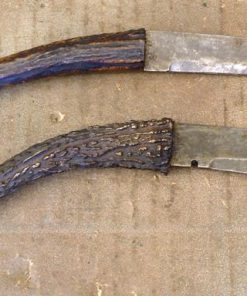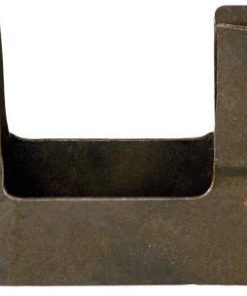Original British WWII British / Commonwealth Forces Prisoner of War Carved Wooden Plate from Épinal, France 1945 – P.W. Camp 451 Original Items
$ 395,00 $ 118,50
Original Item: Only One Available. During the early 1940’s, the Germans had established a prisoner of war camp in Epinal. The camp held hundreds of the British POWs captured around the Mediterranean, including Indian soldiers taken at Tobruk. In May 1944, as they were preparing for the invasion of Europe, the Allies bombed the prison camp. Hundreds of those held captive escaped, but having done so, found themselves wandering the French countryside, trying to make their way to Switzerland. They headed south and east from Epinal, searching for the Swiss border. The eastern border of the Franche-Comté forms the northern part of France’s frontier with Switzerland. The people of the Franche-Comté have a long history of smuggling people and goods into and out of that small nation. The prisoners who had escaped from Epinal knew that they were near the Swiss frontier, but had no idea how near or far it was. So, they began to walk, mostly in groups, hiding in the woods and making little contact with the villages they passed.
These POWs had to remain hidden because their appearance was so very different from the French. Most of these men came from northwestern India, part of which became Pakistan after India’s independence from Britain. Some were Sikhs, some were Muslims and some were Hindus. All were dark-skinned. The Sikhs, mostly from the Punjab region, wore turbans to cover their long hair and beards. The remnants of their British Army uniforms were giveaways, too. It would be almost impossible for them to blend in with the local population. So the escapees took to the woods and wandered, some for weeks, trying to find Switzerland.
On the few farms they passed on their way from Epinal in May of 1944, the escaped soldiers found little to eat. The fruit trees were still in bloom – no apples or pears yet. Even though the Muslim soldiers might kill an occasional rabbit or chicken, the Hindu soldiers refused to eat meat. Eventually, their only hope for survival was to make contact with the French.
This 16 ½” x 9 ⅛” carved wooden plate is in lovely condition without any extensive damage present. The plate has an open mouth tiger on each end of the plate and from the design in which they are carved it does appear to be Indian in origin but we are not sure. The perfect block lettering carved is in English and is as follows:
P.W. CAMP 451
19 EPINAL 45
This is a wonderful piece of not only WWII history but artwork as well. The craftsmanship is impeccable and the carver did so with extreme precision.
Comes more than ready for further research and display.
Fast Shipping with Professional Packaging
Thanks to our longstanding association with UPS FedEx DHL, and other major international carriers, we are able to provide a range of shipping options. Our warehouse staff is expertly trained and will wrap your products according to our exact and precise specifications. Prior to shipping, your goods will be thoroughly examined and securely secured. We ship to thousands clients each day across multiple countries. This shows how we're dedicated to be the largest retailer on the internet. Warehouses and distribution centres can be located throughout Europe as well as the USA.
Note: Orders with more than one item will be assigned a processing date depending on the item.
Before shipping before shipping, we'll conduct a thorough inspection of the items you have ordered. Today, the majority of orders will be delivered within 48 hours. The delivery time will be between 3-7 days.
Returns
The stock is dynamic and we cannot completely manage it because multiple stakeholders are involved, including our factory and warehouse. So the actual stock may alter at any time. It's possible that you may not receive your order once the order has been made.
Our policy is valid for a period of 30 days. If you don't receive the product within 30 days, we are not able to issue a refund or an exchange.
You can only return an item if it is unused and in the same state as the day you received it. You must have the item in its original packaging.
Related products
Uncategorized
Uncategorized
Uncategorized
Australian WWII Owen MK1 Machine Carbine SMG Custom Fabricated Replica with Sling Original Items
Uncategorized
Uncategorized
Uncategorized
Uncategorized
Uncategorized
Uncategorized
Uncategorized
Uncategorized
Armored Burgonet Helmet & Polearm from Scottish Castle Leith Hall Circa 1700 Original Items
Uncategorized
Uncategorized
Band of Brothers ORIGINAL GERMAN WWII Le. F.H. 18 10.5cm ARTILLERY PIECE Original Items
Uncategorized
Uncategorized
Uncategorized
Uncategorized
Uncategorized
Angolan Rebel 1970s era 60mm Inert Display Mortar from Angolan Civil War Original Items
Uncategorized
